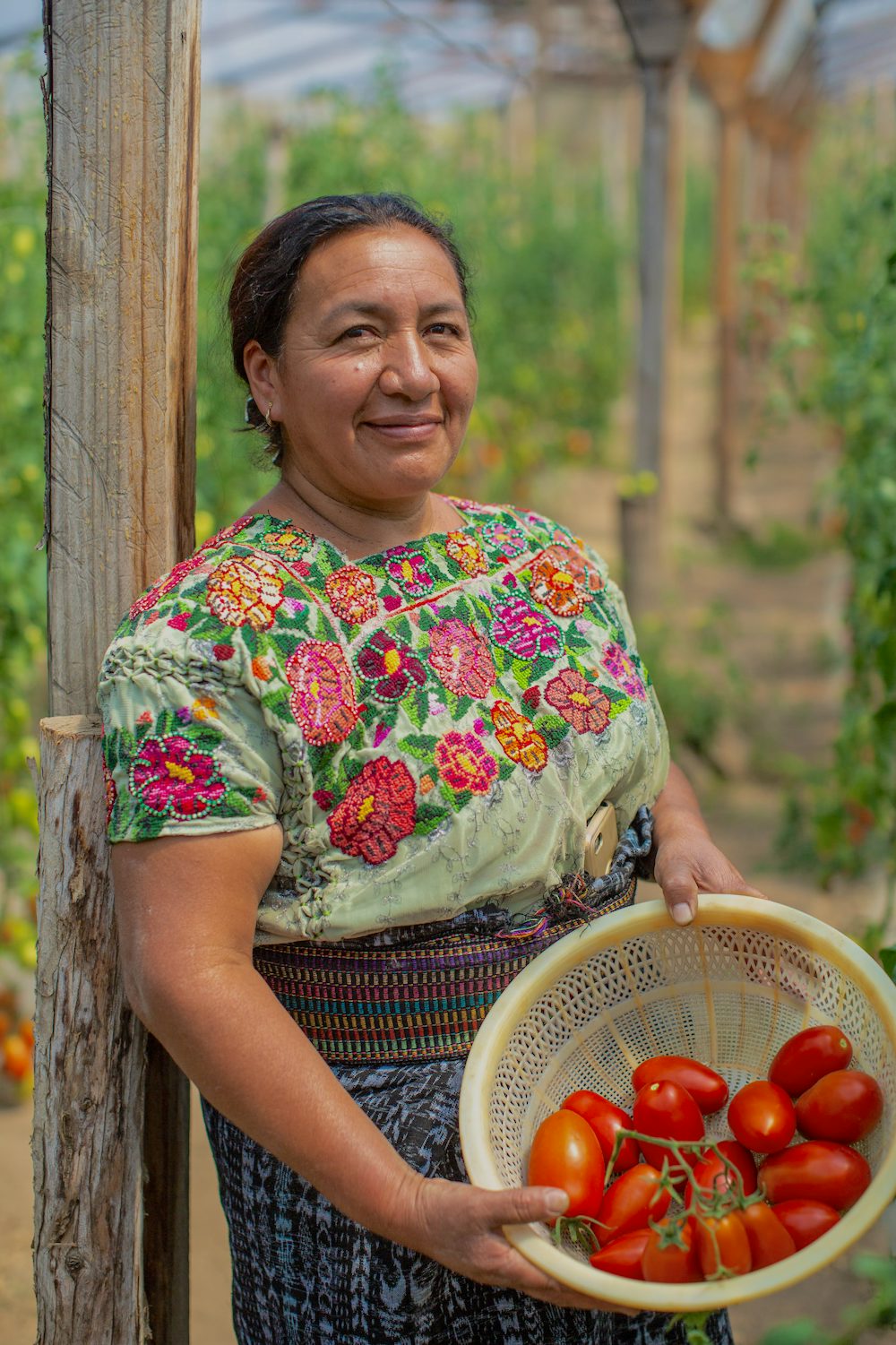Tomorrow is International Day of Peasant Struggle, a day commemorating the massacre of 19 landless farmers in Brazil who were demanding land and justice in 1996. Every year on this date, people around the world unite through actions that support the rights of "peasants" and smallholder farmers.
The event's creation owes a lot to La Via Campesina, an organization that Heifer sometimes collaborates with in Latin America, and the day is called Dia Internacional de la Lucha Campesina in Spanish.
In Heifer's Latin America projects, just about every one of our project participants would identify themselves as a campesino or campesina. It’s a hugely important word in relation to our work in the Americas, but significant meaning is lost when it is translated from Spanish to English.
What does campesino mean in English?
The most literal (and frequently used) translation is "peasant," but that's not really a word we use much in English anymore, unless it's found in a history book. "Smallholder farmer" or “family farmer” aren’t bad translations, but they miss some of the word's richness in Spanish.

La Via Campesina defines itself as "the international peasant movement" (clearly translating campesino as peasant) that brings together (and here's their extended, de facto campesino definition) "millions of peasants, small- and medium-size farmers, landless people, women farmers, indigenous people, migrants and agricultural workers from around the world."
That's a mouthful for just one word in Spanish. Sara Koopman, an assistant professor in peace and conflict studies at Kent State University, writes a wonderful blog called Spanish for Social Change that focuses on social justice terminology for translators and interpreters. She has several posts on the term campesino and ultimately recommends importing the word to English, and ensuring it's understood that all these groups are included when campesino is used.
Campesino is an encompassing term, including small- and medium-size farmers, landless people, women farmers, indigenous people, migrants and agricultural workers from around the world.
“Campo means field, or rural area, and ino derives from Latin as ‘ownership’ or ‘relationship to’,” said Oscar Castañeda, senior vice president of Heifer’s Americas Programs. “So when you’re talking about a campesino, it’s somebody who cultivates and has a [sense of] belonging to the land.”
More specifically, campesinos are rural producers who work small plots, with the family constituting most or all of the labor, and often do not own land. The food they harvest is traditionally for their own consumption and sale to the market, with both activities maintaining the life of the family as opposed to accumulating capital.
Campesinos are rural producers who work small plots, with the family constituting most or all of the labor, and often do not own land.
Another important aspect, Castañeda said, is the presence of specific values and cultural elements of rural areas, such as nurturing a relationship with the land, with the community and with fellow campesinos. “Campesino is not only an economic occupation,” he said. “It’s a style and a form of life. And that is what we would like to elevate in the conversation.”
Unfortunately, campesinos often suffer from marginalization, exploitation via sale prices that do not represent all of the work invested or, as mentioned above, restricted (or no) access to land. Heifer, project partners and project participants are working together to overcome these obstacles while moving forward on the path to end hunger and poverty.
_Carlos_Rodriguez,_Eleazar_Rodriquez_Luis_and_their_father,_Ciro_Rodriguez,_sit_on_a_pile_of_agave_pinas_with_their_tools._Photo_by_Phillip_Davis.JPG?or=0&q=60&crop=faces,entropy&auto=format&fm=jpeg&shad=50&vib=20&duotone-alpha=40&duotone=000000,2CFFD4C6&w=1000)
"Small-scale farmers have been pushed aside in many places because people don't see their contributions to a globalized world," said Adriana Garcia-DeVun, director of the Americas Program at Heifer.
What connotations does the word campesino have?
Despite the marginalization they endure, there is a lot of pride behind the word campesino, Garcia-DeVun added.
"Being a campesino/a is beginning to be seen as an honorable profession," she said. "[You can see] the same pride you get by saying you're a doctor, police officer or school teacher, someone [who] contributes to the well-being of society. The use of a simple word, campesino, [makes] them a part of a movement [that is] feeding the world, not just a peasant trying to make it day to day.”
"Being a campesino/a is beginning to be seen as an honorable profession. [You can see] the same pride you get by saying you're a doctor, police officer or school teacher, someone [who] contributes to the well-being of society." – Adriana Garcia-DeVun
In the past, said Castañeda, terms used to refer to rural field workers – terms like serfs, tenants or slaves – have defined the occupation as pejorative and retributive. “But campesino is a term with the possibility of reclaiming it as somebody [who] is important and critical for food security and for food sovereignty,” he said. Excising the word’s negative connotations is vital, Castañeda contends, which comes back to “recognizing that, at its heart, it’s just a state of life.”
Garcia-DeVun agrees. "The work of organizations like Heifer and La Via Campesina help people regain or further develop their sense of pride in cultivating the earth for the benefit of their children and sometimes their community," she said.
This year’s Dia Internacional de la Lucha Campesina celebrates 25 years of working toward food sovereignty – access to healthy and culturally appropriate food produced through sustainable methods. For more information on today's event, visit La Via Campesina.
Last updated April 16, 2021
